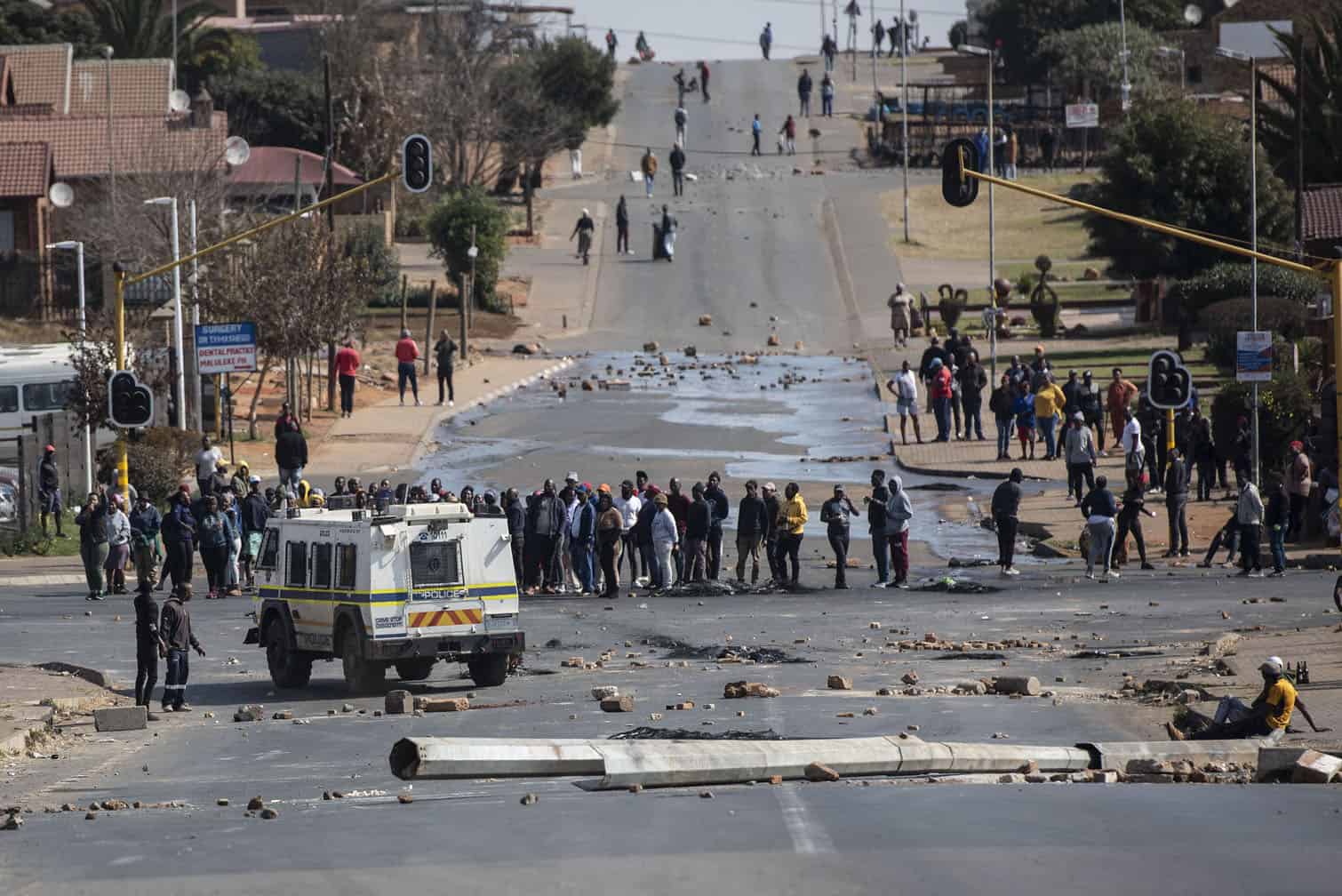SA could descend into complete lawlessness if the government doesn't act proactively.

There is a possibility that South Africa could descend into complete lawlessness and chaos, according to criminologist, Hennie Lochner.
His warnings come in the wake of violent protests in different parts of the country, particularly in Gauteng.
ALSO READ: Tembisa shutdown: Death toll climbs to four
In recent weeks, former president Thabo Mbeki warned of South Africa’s own Arab Spring, should critical issues of poverty, unemployment and crime not be addressed as a matter of urgency.
ALSO READ: Mbeki warns ANC not to dismiss sentiments that SA is on auto-pilot
Speaking to The Citizen on Wednesday, Lochner said Mbeki’s warnings should not be taken lightly.
“It depends on what the rioters are planning to do, I mean look at what happened in KwaZulu-Natal (KZN) last year.
“It doesn’t matter if you are driving in a Casspir (an armoured military vehicle) or a Nyala (Police armoured vehicle), when protesters get violent, even police officers become scared,” he said.
Lochner said while the African National Congress’s (ANC) Policy Conference held last weekend, went well without any violent incidents, violent protests should still worry many – including the government.
“Something is definitely cooking and my concern is that the Policy Conference went smooth, nothing went wrong, it was on time, but that also doesn’t mean the other faction – which is unhappy with Ramaphosa – is just sitting back… It is an indication for me that they could be preparing for something else,” he said.
Lochner recalled his time as a police officer during the riots that happened during the apartheid times.
He spent approximately six months during the riots in Gugulethu in 1985. He described the situation then as “heat to a point where one could not even stick his nose out of a Casspir”.
According to Lochner, in one of the riots, where anti-apartheid activists – Allan Boesak, Desmond Tutu and Winnie Madikizela-Mandela were present, he was hit with something which appeared to be coming from the nearby informal settlement. Lochner is of the view that similar violent riots can still occur.
“We can only hope that it doesn’t happen because if it does, not even government – with it’s security agencies – will be able to stop it,” Lochner added.
Julius Malema, the leader of the Economic Freedom Fighters (EFF), shared Mbeki’s sentiments.
On more than one occasion Malema warned of what he described as an ‘unled revolution’ brewing due to the disgruntlement of citizens.
Municipal IQ, a web-based data and intelligence service specialising in the monitoring and assessing municipalities, also warned of the possibility of more violent protests.
According to managing director of Municipal IQ, Kevin Allan, the fact that protests in June and July 2022 were at their highest in two years is not a good sign and that they may likely point to higher protest levels this year.
MAIN REASONS BEHIND PROTESTS
Allan said almost all the service delivery protests at the moment have electricity issues as the dominant complaint driving them.
“This was the case in Soweto in June and July, and Thembisa this month, residents are unhappy with load shedding.
“Residents are also very unhappy with electricity being cut to individual properties because of non payment,” said Allan.
HOW CAN GOVERNMENT PREVENT VIOLENT PROTESTS
Allan is of the opinion that it is time that government intervened in a meaningful proactive way to address these issues.
“Government’s response has been patchy and reactive, and communities know if they are able to get media attention through violence and destruction, government will react.
“There is usually no response by government and communities are, therefore, motivated to carry out violent and destructive protests… A coherent proactive strategy by government would stabilise the situation in many cases,” Allan said.
IS THERE POLITICAL WILL TO ADDRESS SERVICE DELIVERY ISSUES?
Dr Trevor Ngwane of the Soweto Electricity Crisis Committee said life for the ordinary man on the street is fast becoming increasingly intolerable.
“There is exhaustion of provision of water, electricity, houses, clinics and transport in many areas where black working class areas live.
“There is exhaustion of liberal democracy with the government increasingly failing, and even incapable, to deliver material benefits to the masses. This includes managing the political and economic crisis,” said Ngwane.
OUTCOMES OF ANC POLICY CONFERENCE
Ngwane believes the governing ANC’s policy outcomes are symptomatic of the paralysis and retreat of the ruling party, particularly when it comes to land redistribution and expropriation without compensation, which has been replaced by a policy of asking land donations from agribusiness and white farmers.
“There is no movement on so-called radical economic transformation, with the wild castration policy for rapists as a solution to chronic gender based violence.
“Everything is a problem for the masses, there is uncertainty, insecurity and instability,” he said.
HOW FAR IS SA FROM A COMPLETE SHUTDOWN?
“It depends on leadership because uprisings are never truly spontaneous.
“It also depends a lot on how the ANC and the State responds, for example, shooting and killing protesters, as in Tembisa, brings the day closer,” Ngwane added.
Support Local Journalism
Add The Citizen as a Preferred Source on Google and follow us on Google News to see more of our trusted reporting in Google News and Top Stories.






